#you can tell that I'm uh. not used to drawing anthropomorphic animal characters. but I'm working on it I'm working on it
Explore tagged Tumblr posts
Text





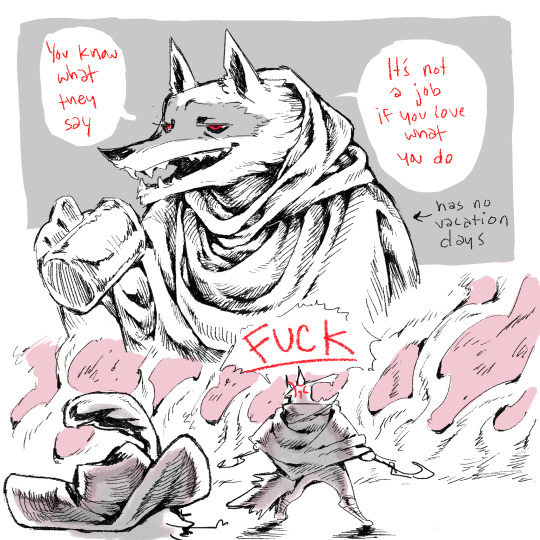
wolf boy (derogatory)
#puss in boots brain rot lets fucking GO#you can tell that I'm uh. not used to drawing anthropomorphic animal characters. but I'm working on it I'm working on it#puss in boots#puss in boots the last wish#puss in boots wolf#puss in boots lobo#puss in boots the last wish spoilers#(just in case)#eye strain#scrib art#scrib's pibtlw art
10K notes
·
View notes
Text
Why Donald Duck is a Duck Centaur
Or rather, a thorough analysis on the anatomy of anthropomorphic ducks.
So I'm playing a certain Nintendo game ahead of time, and a duck character's anatomy caught my eye. It was interesting, and ripe for the ol’ art brain to overthink to the logical extreme.
Naturally, I don't want to get struck down by the Nintendo ninjas, so today we'll be talking about Donald Duck.
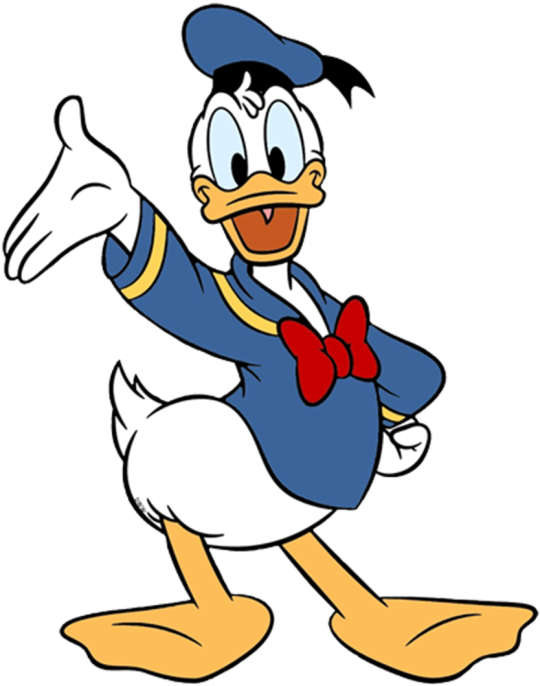
Behold.
Standard cartoon duck anatomy, right? Well, there’s more to it than it seems.
We’ll be breaking down his anatomy using the human anatomical structure, since he’s anthropomorphic, and going down from there.
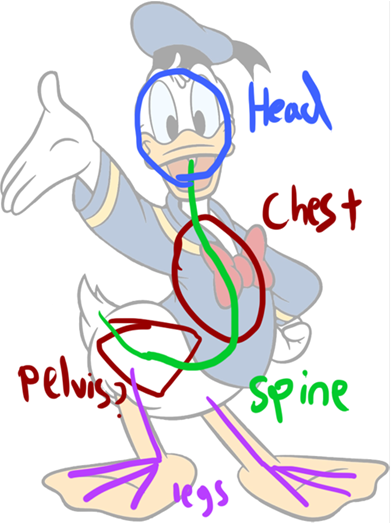
And for reference, we’ll be using a diagram of a real duck skeleton.
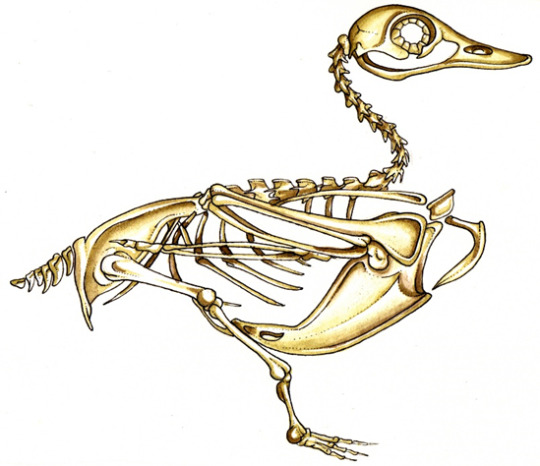
I will also be adding on with my own diagrams, though the skeletons illustrated are in no way perfect. I also do not claim to be an expert on animal or human anatomy, and this is purely for fun and morbid curiosity.
Let’s start with the head.
The Head
Donald Duck’s eyes are front-facing, and from existing material, we can conclude that his neck connects to his skull from below, not from the back (as with real life ducks).
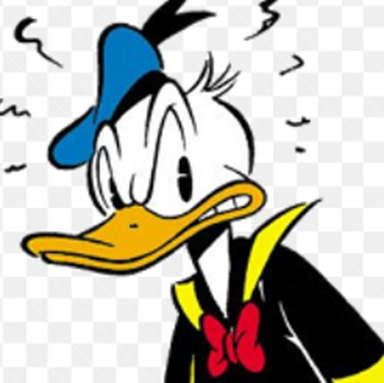
Therefore, it’s safe to say that Donald has a mostly-human skull structure, minus the beak. Since his eyes are so large, he likely doesn’t have much of a forehead at all.
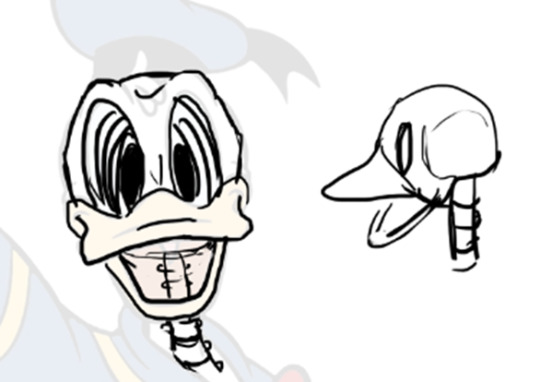
The Body
We can conclude that his ‘chest’ area is similar to that of a human’s. His arms are very identical to human arms (besides the four fingers), and is stylized to look like wings. There should be a ribcage to give his chest that shape, as well as to connect to his arms.
In many animals, the clavicle/scapula helps articulate the forearms, and is located next to the ribcage, so we can conclude this is the same for Donald.
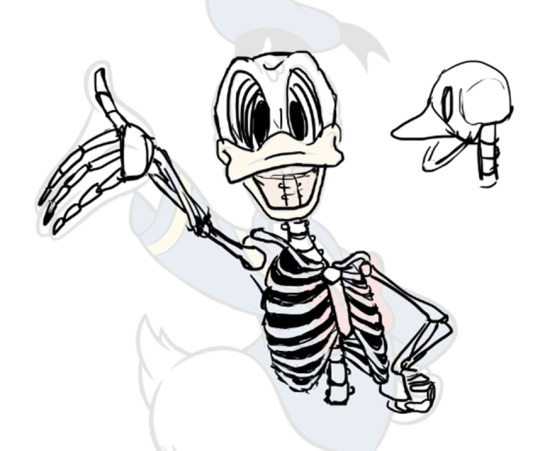
Now, moving on to the lower half of Donald’s body. It looks something like this.
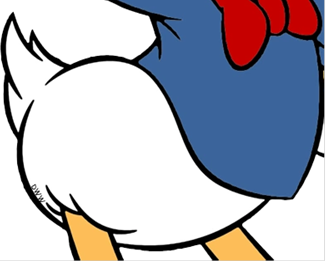
It does kind of look like Donald has a thicc booty, but we can see something similar in the bodies of real life ducks.
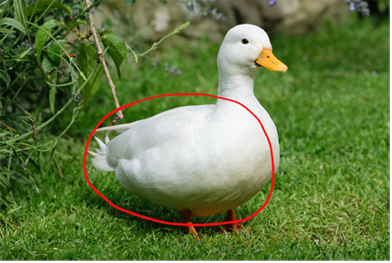
They don’t have a human upper-body, so it’s less like a fat ass and more like…a duck.
So, how does this look like in the skeleton?
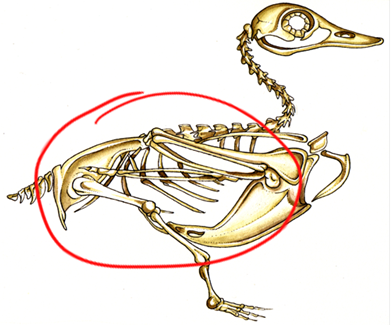
…uh oh. It’s another ribcage.
But wait! If Donald’s anthropomorphic, maybe it’s just a pelvis? Well, maybe, but that distinct shape is hard to replicate with *just* the pelvis of a duck.
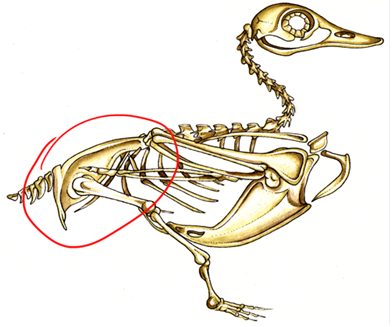
The duck pelvis, if you will. ^
Maybe it could be fat. Maybe he does have a really fat ass. Maybe it helps cushion his weird duck spine when he sits, or keep him warm while swimming. Well, maybe. But it would be odd to have such a fat distribution without a skeleton to give it that shape.
For context, the blue whale has the most body fat out of all animals, and you can see how its skeleton guides its shape:
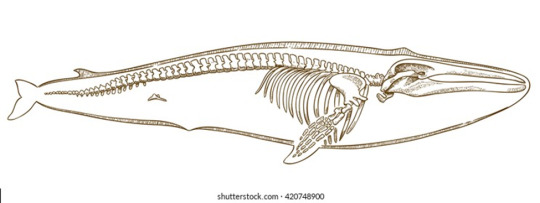
(Unfortunately I had to get this diagram from Shutterstock, which is not a very accurate anatomical resource, but just look at a blue whale skeleton and at an actual blue whale.)
But I digress. Since we’re taking this essay to the logical extreme already, it stands to reason that, if we’re comparing to real life ducks, Donald Duck does, in fact, have two ribcages.
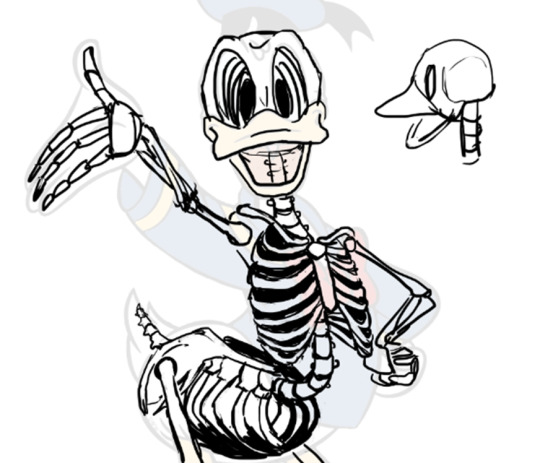
Excuse how tight the drawing is. I’m not very good at ribcages. You can tell I’m the kind of artist who uses shorthands whenever they sketch a ribcage.
Anyway.
A centaur has a human upper body and a horse lower body. Donald Duck has a human upper body and a duck lower body. Therefore, he is a duck centaur.
However, we are not done with this analysis yet. We still need to talk about his legs.
The Legs
So, duck legs, right? Well, we already know they connect to the pelvis the same way as a duck. They’re kind of shoved to the back, because that’s where the pelvis is located. Still, they’re not quite actual duck legs.
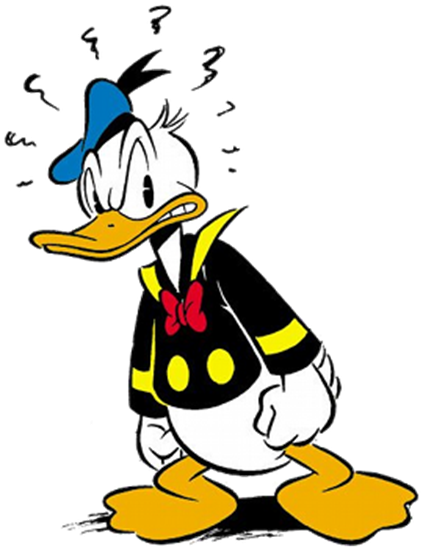
From existing material, we see his knees bend the same way as a humans, and therefore, we can conclude that Donald is plantigrade. What does this mean? Well, his ankles stay planted to the ground, basically.
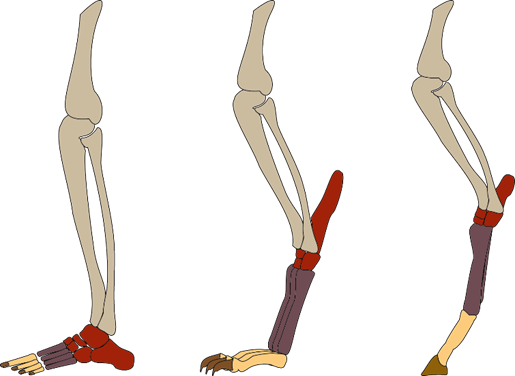
Here’s an example diagram, going in the order of: Plantigrade, Digitigrade, Unguligrade. Plantigrade is mostly primates, like humans. Digitigrade is most common amongst animals, like dogs or birds. Unguligrades are stuff like horses. (Unrelated, but did you know that this means that horse legs are just advanced fingers?)
Anyway, the advantages of being plantigrade is a better balance as a tradeoff for speed. (Source, because I am a cool person: https://www.nsf.gov/news/news_summ.jsp?cntn_id=190923)
This aids animals in fighting, as opposed to fleeing.
Which checks out, because Donald has canonically been shown to fight, especially since he’s not very good at healing:
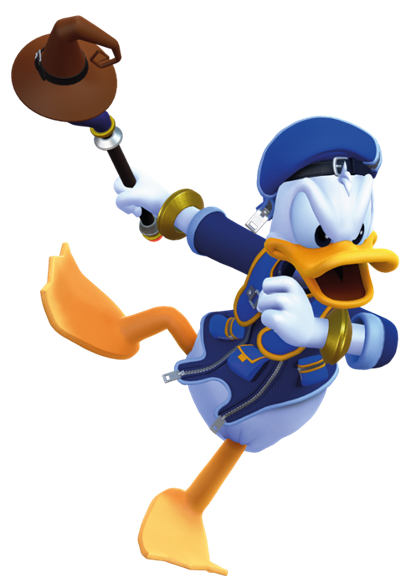
The Conclusion
By analyzing Donald’s anatomy and comparing it both humans and ducks, we get this:
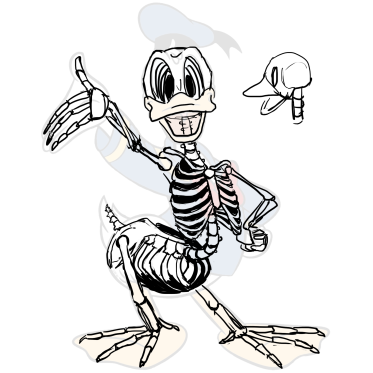
Thanks for coming to my Ted Talk.
Image Citations: Well, I was actually going to cite my image sources, but Tumblr only allows me maximum ten links per images, so I'm just going to leave what I put into Google Images.
"digitigrade vs. plantigrade"
"duck"
"duck skeleton"
"indian runner duck"
"donald duck"
"donald duck kingdom hearts"
"blue whale skeleton"
266 notes
·
View notes